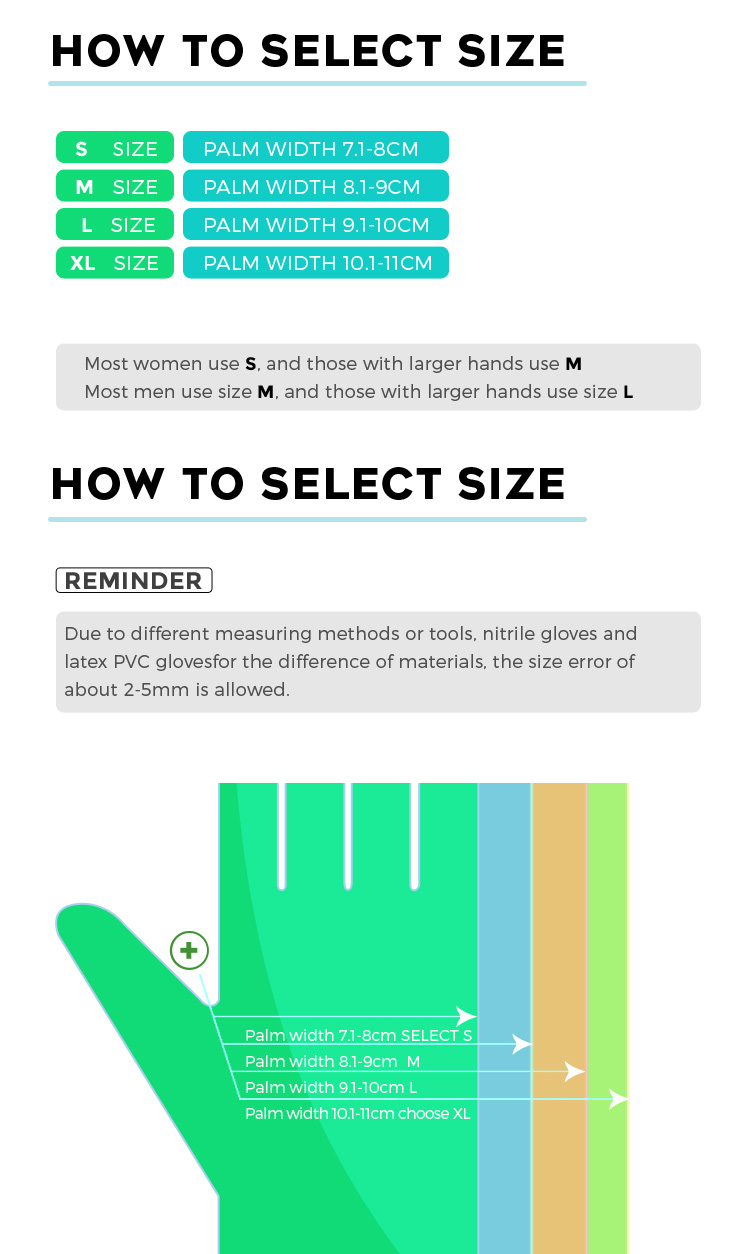Disposable Nitrile Examination Gloves Quality Standards(Medical):
Conforms to GB 10213-2006、ASTM D6319 ASTM D6978 and EN455 Standards
Nitrile is the most versatile material used in disposable gloves. It’s available in many thicknesses and is hypoallergenic, so it’s safe for those with a latex allergy.
Nitrile examination gloves are disposable gloves commonly used in medical and healthcare settings.
1. Allergen-free: Nitrile gloves are suitable for individuals with latex allergies or sensitivities, as they are free from natural rubber latex proteins.
2. Strong and durable: Nitrile gloves are puncture-resistant and provide good barrier protection against chemicals, viruses, bacteria, and other contaminants.
3. Excellent tactile sensitivity: Nitrile gloves offer good sensitivity, allowing users to maintain dexterity and feel while performing tasks.
4. Comfortable fit: These gloves are available in various sizes and have a snug fit, providing comfort for extended wear.
5. Chemical resistance: Nitrile gloves are resistant to a wide range of chemicals, including oils, solvents, and certain hazardous substances, making them suitable for laboratory work and other applications where chemical protection is required.
Functional Benefits:
• Protection from unwanted or dangerous substances
• Beaded cuff makes donning easy and helps prevent roll back
• Superior strength with better puncture resistance
• Full textured enhances wet and dry grip
• Thinner gauge improved tactile sensitivity
• Custom design enhances comfort and fit
• Provide an alternative solution for individuals who are allergic to natural rubber latex

Disposable nitrile gloves come in different thicknesses to cater to various applications. The thickness of nitrile gloves is typically measured in mils (one mil is equivalent to one-thousandth of an inch) or in grams per square meter (gsm). The most common thickness options for disposable nitrile gloves are:
When choosing disposable nitrile gloves, consider the following factors:
Application: Determine the specific tasks or activities for which you need the gloves and assess the associated risks. Different tasks require varying levels of protection and dexterity.
Required Protection: Consider the potential hazards, such as chemicals, sharp objects, or pathogens, that may be encountered during your activities. Select a glove thickness that offers adequate protection against those hazards.
Comfort and Fit: Ensure that the gloves fit properly and are comfortable to wear for extended periods. Gloves that are too tight can cause discomfort and reduce dexterity, while loose gloves may compromise safety and performance.
Quality and Certification: Look for gloves that meet relevant quality standards, such as those certified for medical or food handling purposes.
By considering these factors, you can choose the appropriate thickness and quality of disposable nitrile gloves that best suit your needs. It may be helpful to consult with a supplier or safety professional for further guidance based on your specific requirements.

 X
X